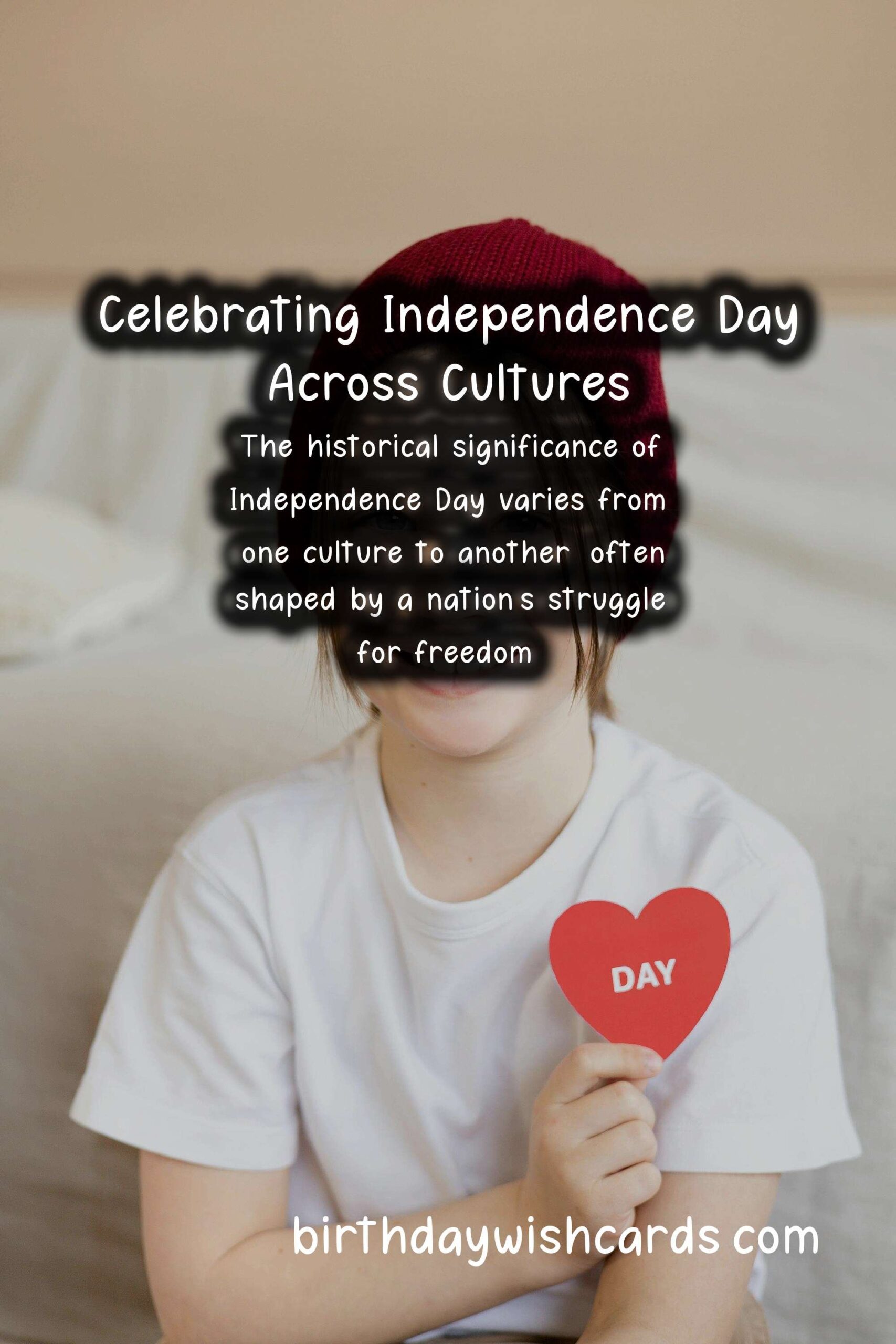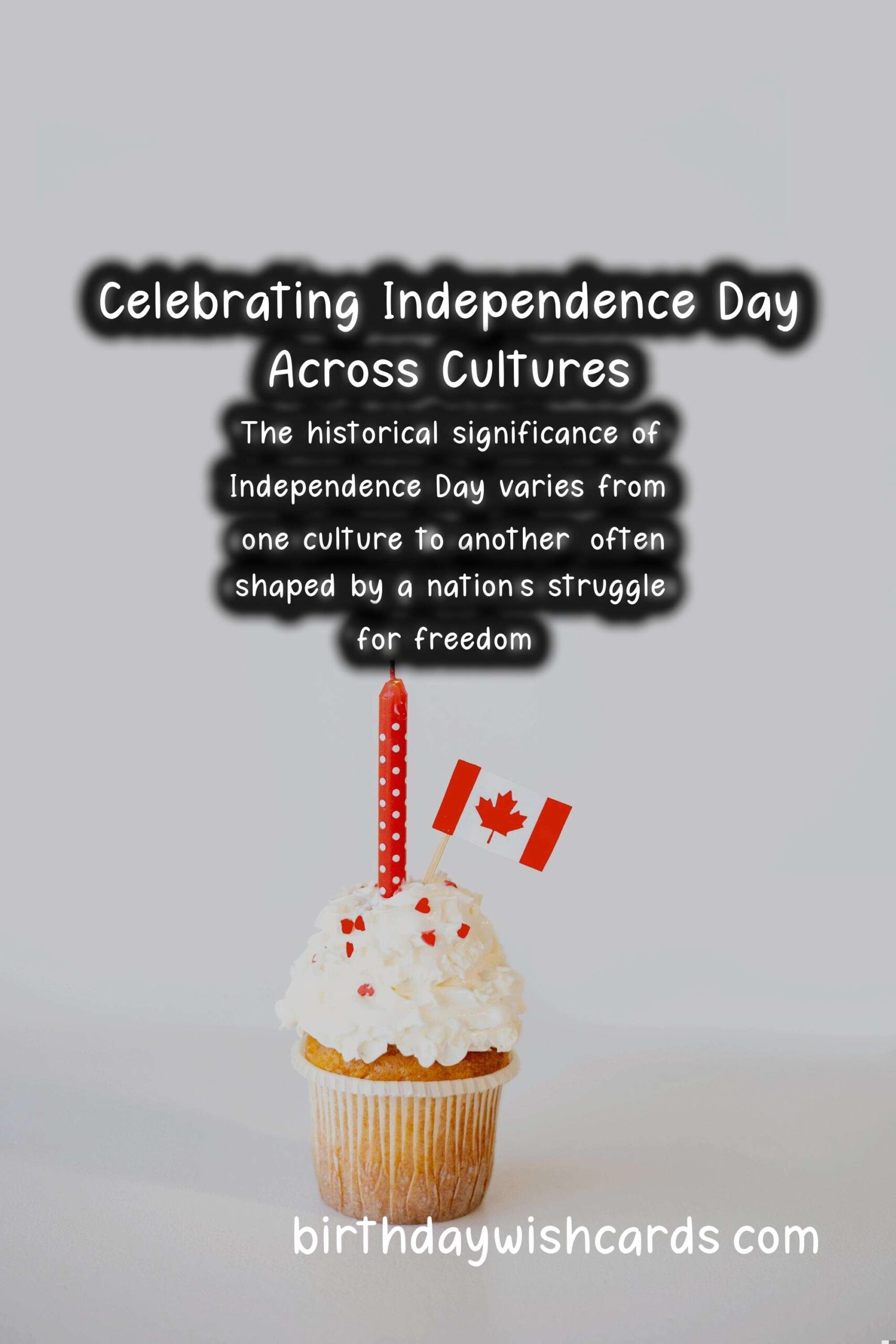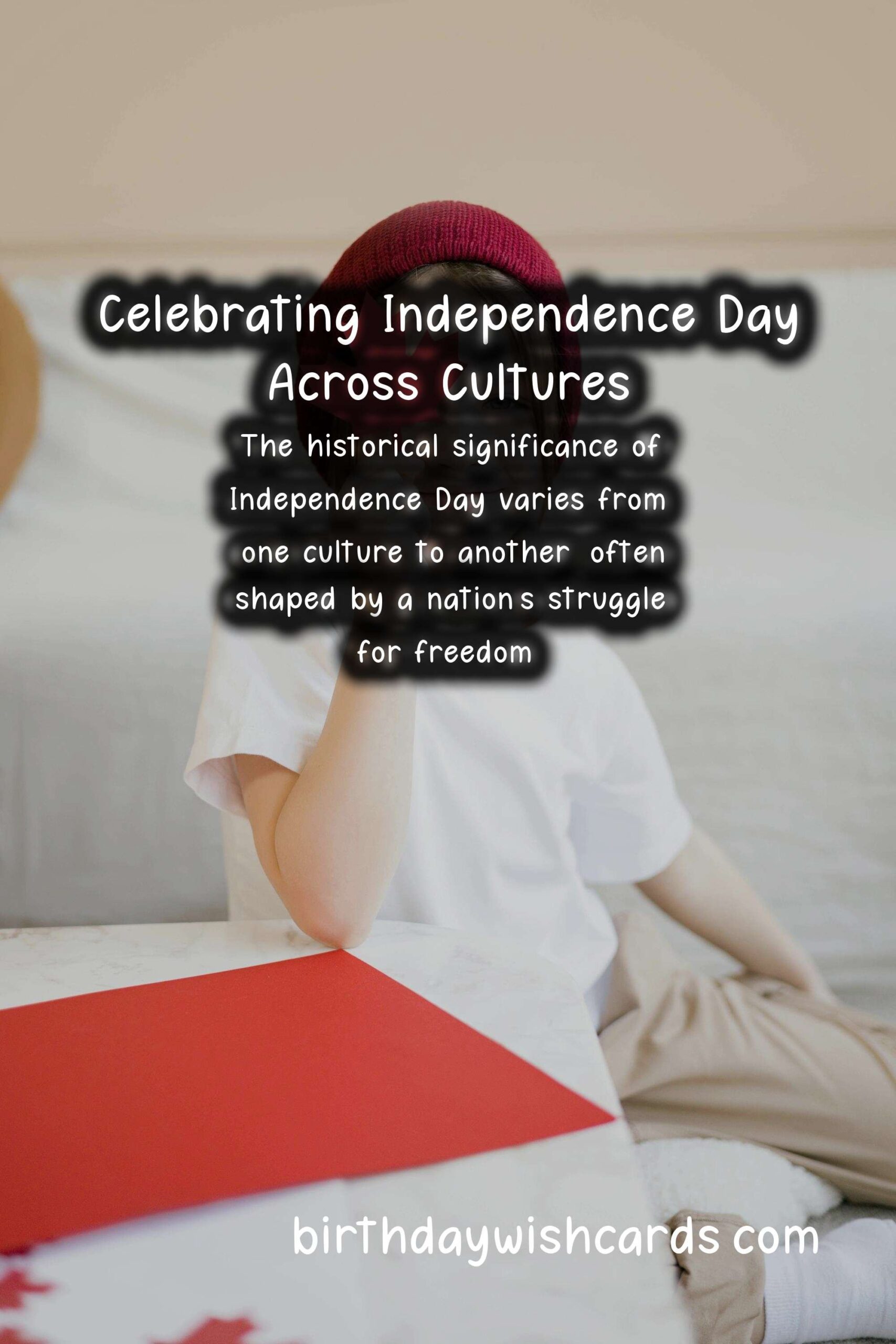The Importance of Independence Day in Different Cultures
The Importance of Independence Day in Different Cultures
Independence Day is a significant event celebrated across the globe, with each culture adding its own unique flavor to the festivities. It marks the day when a nation achieved freedom from colonization or oppressive rules, symbolizing a new beginning for its citizens.
Historical Significance
The historical significance of Independence Day varies from one culture to another, often shaped by a nation’s struggle for freedom. In the United States, for instance, July 4th commemorates the adoption of the Declaration of Independence in 1776, representing the birth of a new democratic nation.
In India, August 15th signifies the end of British colonial rule in 1947, celebrated as a day of unity and pride. Each country’s history provides a distinct backdrop to this important day, making it an opportunity for reflection and honoring those who fought for freedom.
Celebrations Around the World
Independence Day celebrations vary widely based on cultural practices. In the United States, it is common to see fireworks displays, parades, and barbecues where families and friends gather to celebrate together.
On the other hand, Brazil celebrates its Independence Day on September 7th with military parades, cultural exhibitions, and public concerts, showcasing the nation’s rich heritage.
Symbolism of Independence
Independence Day serves as a reminder of the values of freedom, democracy, and self-determination cherished by different cultures. In every nation, the day is symbolic, representing the sacrifices made by countless individuals in the pursuit of liberty.
For instance, in Mexico, the celebration known as “El Grito de Dolores” takes place on September 16th, which marks the start of the fight for independence from Spanish rule. This event is characterized by patriotic speeches and vibrant festivities that reflect national pride.
Common Themes Across Cultures
Despite the different historical contexts, several themes resonate during Independence Day celebrations worldwide:
- Patriotism: Citizens express their love for their country through various forms of artistic expressions, including music, film, and literature;
- Unity: Independence Day fosters a sense of national unity, encouraging people to come together regardless of their differences;
- Reflection: Many nations use this day to honor heroes who fought for freedom, reflecting on past struggles and contemporary issues that promote progress.
The Role of Education
Education plays a crucial role in shaping the understanding of Independence Day among citizens. Schools often hold educational sessions on the significance of the day, teaching students about their history and the importance of active citizenship.
In many cultures, engaging the youth in Independence Day celebrations helps instill a sense of pride and responsibility toward their country. For example, children in the Philippines participate in various activities that highlight their nation’s history and cultural heritage, reinforcing the values associated with independence.
Challenges and Ongoing Struggles
While Independence Day is a day of joy and celebration, it is also essential to recognize the ongoing struggles faced by many nations. In some cases, the fight for independence is not fully realized, and people continue to seek justice and equality.
In many African nations, Independence Day serves as a reminder of the work still needed to achieve true liberation and development. Events are often held to discuss current challenges, inspiring collective action toward a better future.
Cultural Exchange and Globalization
Globalization has influenced how Independence Day is celebrated in various cultures. With the advent of technology and social media, people across the world can share their unique ways of celebrating independence.
For example, expatriates often organize events abroad to celebrate their home country’s Independence Day, fostering a sense of community while also promoting cultural exchange. This blending of traditions adds a rich dimension to how independence is viewed globally.
Conclusion
Independence Day is more than just a holiday; it is a powerful symbol of freedom and resilience across cultures. By exploring the significance of this day in different societies, we come to appreciate not only the historical context but also the rich tapestry of human experience that it represents.
As we celebrate Independence Day, let us honor the diverse ways in which people around the world find meaning in their quest for freedom, and continue to work towards a future filled with justice and equality for all.
Independence Day is a significant event celebrated across the globe, with each culture adding its own unique flavor to the festivities.
The historical significance of Independence Day varies from one culture to another, often shaped by a nation’s struggle for freedom.










#IndependenceDay #CulturalDiversity






